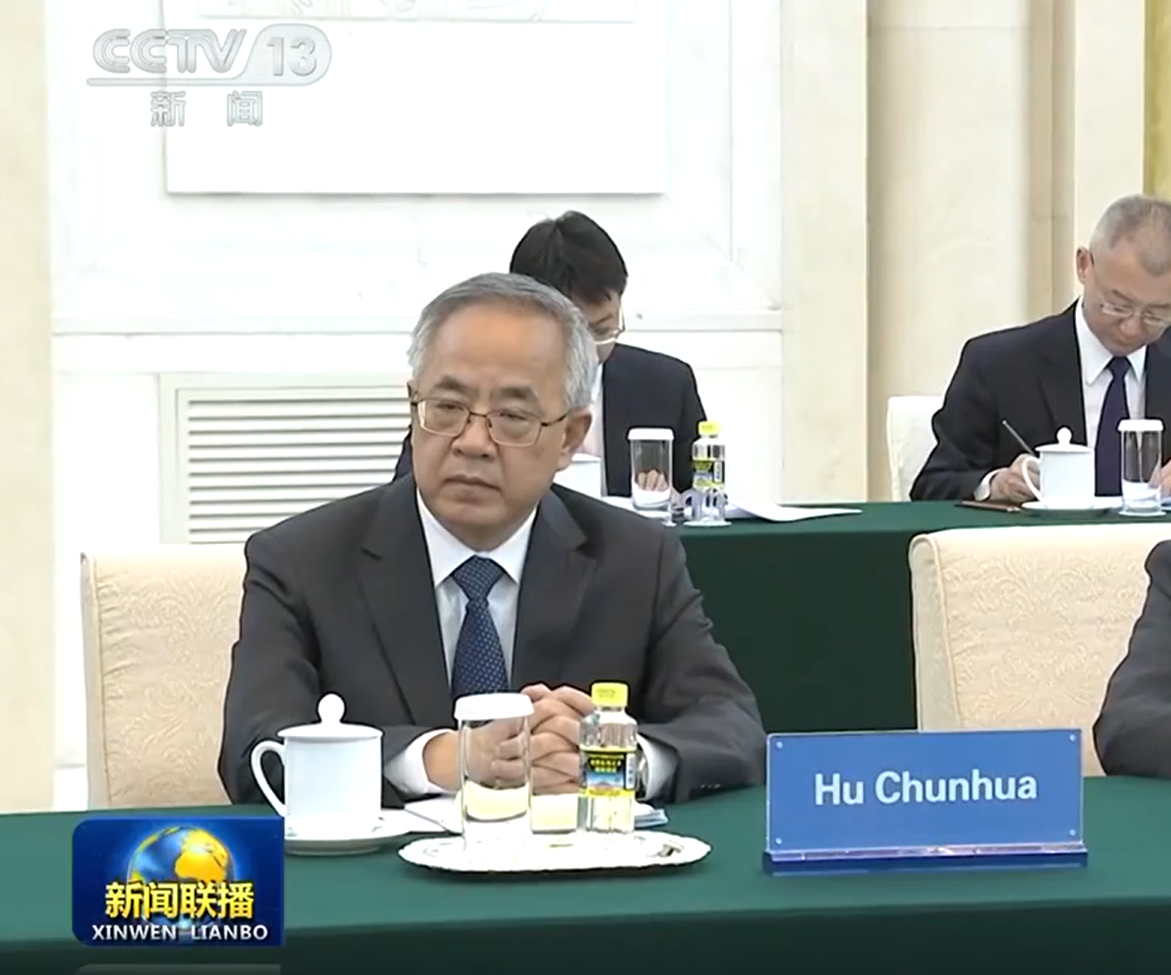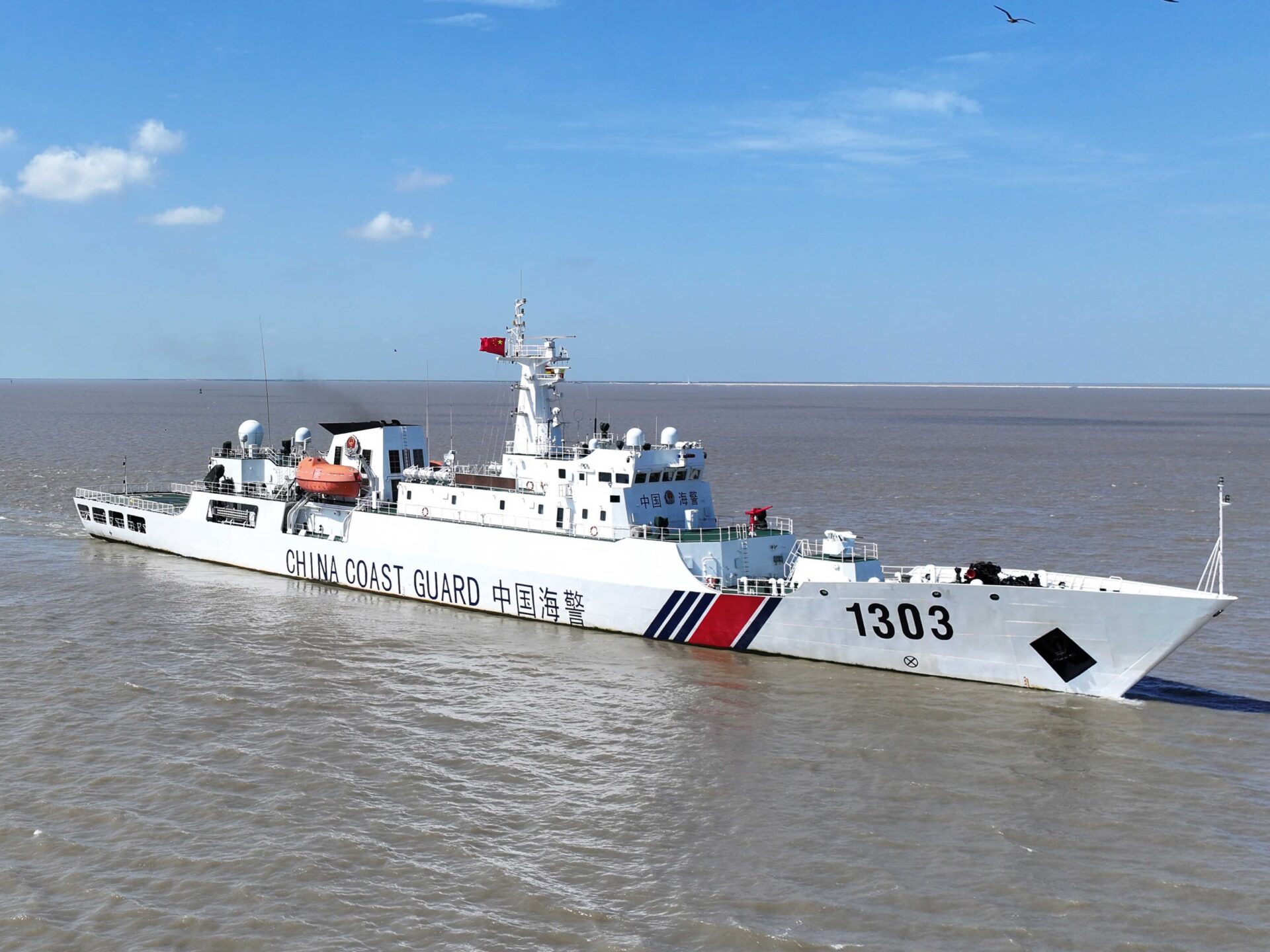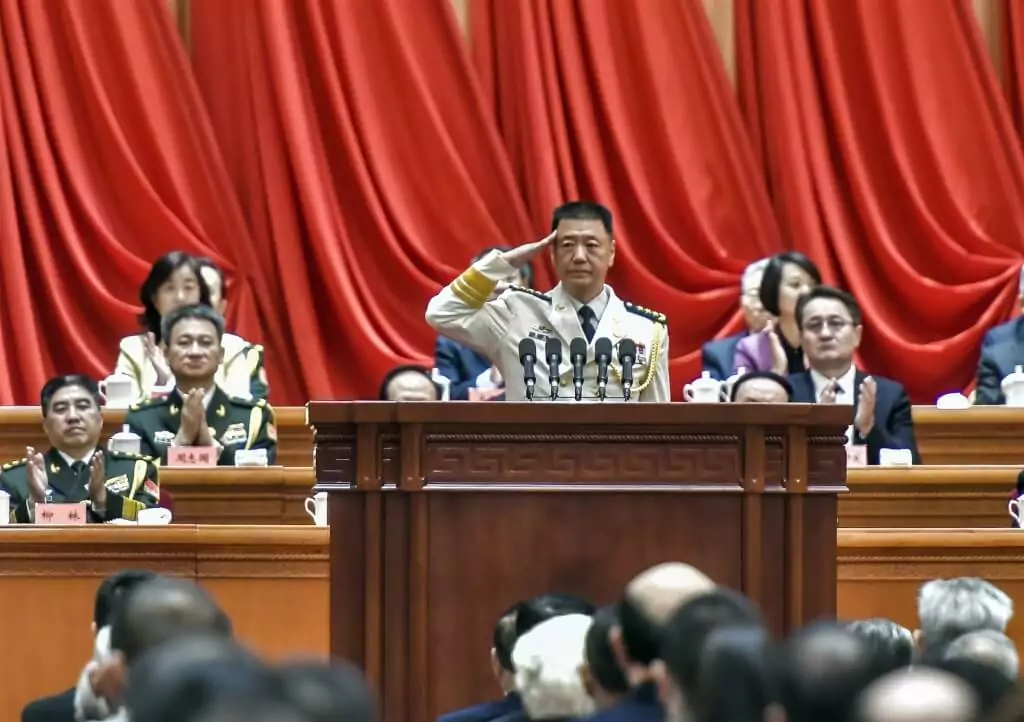
PLA Purges Provide Opening for Xi’s Rivals
PLA Purges Provide Opening for Xi’s Rivals
Executive Summary:
- New evidence suggests that a faction within the Chinese Communist Party (CCP) aligned with former president Hu Jintao and former premier Wen Jiabao could be exerting influence on the direction of the Party.
- Three party elders—all of whom were Hu Jintao allies—reportedly criticized General Secretary Xi Jinping at Beidaihe in August 2023, while subsequent purges have eroded Xi’s base of support in the military.
- More recently, signs that Xi’s erstwhile successor Hu Chunhua is regaining prominence following a demotion from the Politburo in 2022 could indicate that this “Tuanpai” faction is gaining ground. These signs include Hu leading an overseas delegation and visiting the Vietnamese embassy to convey his condolences for the passing of its former president—a role usually reserved for a politburo member.
- Xi also recently made a speech referring to “scientific, democratic, and law-based policymaking,” a key phrase associated with his predecessor, Hu Jintao. This could be interpreted as a concession to the Tuanpai faction.
New evidence suggests that a faction within the Chinese Communist Party (CCP) aligned with former president Hu Jintao (胡锦涛) and former premier Wen Jiabao (温家宝) could be exerting influence on the direction of the Party. Earlier this year, we speculated that CCP General Secretary Xi Jinping’s power was being curtailed following purges that eroded his bases of support in the military (China Brief, March 15). Now, the return to prominence of Hu Chunhua (胡春华), alongside reporting about events that took place at the leadership’s summer retreat in Beidaihe in August 2023, could indicate that the “Hu-Wen faction” is resisting Xi Jinping to some degree.
The Fall of the Hu-Wen Faction
When Xi became paramount leader of the PRC in 2012, he blunted the power of Hu Jintao’s supporters. Hu’s base of support within the Party was known as the Communist Youth League or “Tuanpai” (团派) faction—also referred to as the “Hu-Wen” faction to reflect the involvement of Wen Jiabao, who was never a part of the Youth League (Brookings, April 29, 2009). On ascending to power, Xi had officials aligned with the Tuanpai faction arrested, like Ling Jihua (令计划), or sidelined, like Li Keqiang (李克强) (New York Times, August 4, 2016; Reuters, October 26, 2022). Xi also stymied the rise of Hu Chunhua, who was Hu and Wen’s preferred candidate to succeed him, by demoting Hu Chunhua from the Politburo in 2022 (Xinhua, December 18, 2012, accessed June 17). [1] In so doing, Xi rejected a soft norm known as “skipping a generation to designate a successor” (隔代指定接班人), whereby each former leader selects the leadership candidates who will follow their own successor (DW, July 28, 2017). [2]
The final blow to the Tuanpai appeared to come in the form of public spectacle, when Hu Jintao was unceremoniously removed from the closing ceremony of the 20th CCP National Congress (Reuters, October 26, 2022). During the ceremony, Hu Jintao attempted to confirm a rumor that Hu Chunhua was missing from the Politburo list but was stopped and dragged away (VOA, October 31, 2022; Radio France Internationale, November 10, 2022). Xi also appeared to break precedent by allowing Wang Huning (王沪宁) to remain on the Standing Committee while Li Keqiang and Wang Yang (汪洋) had to step down. This violated another soft norm—that of “seven up, eight down” (七上八下), whereby cadres aged 68 or more are expected to step down (Liberty Times, October 23, 2022, [1], [2]; China Brief, January 17). Since then, the Tuanpai have been largely impotent as a faction within CCP politics.
The Hu-Wen Faction Returns?
Hu Chunhua, Xi’s erstwhile successor, recently has regained a degree of prominence. In April, he led a delegation of the Chinese People’s Political Consultative Conference (CPPCC), of which he is a senior official, to West Africa (Xinhua, April 17). This was his first such mission since his demotion. The following month, Hu was again tapped to represent the PRC, visiting the Vietnamese embassy to convey his condolences for the passing of former President Trần Đức Lương (Báo Quốc Tế, May 25). Vietnam, a fellow socialist state, is an important partner for the PRC (China Brief, July26, 2024). The significance of this visit is underscored by the PRC’s “funeral diplomacy” (葬礼外交) norms, whereby representatives attending the mourning of a former head of state are usually at least a deputy national-level official and a Politburo member (The Paper, April 6, 2015). Hu’s attendance, especially in a country like Vietnam with close Party ties, signifies a subtle increase in his stature within the CCP. [3]
A third suggestion of the Tuanpai faction’s rising clout is a reference Xi made in a recent speech on the upcoming 15th Five-Year Plan to “scientific, democratic, and law-based policymaking” (科学决策、民主决策、依法决策). This slogan is one that Hu popularized, and that he repeated in his final report to the 18th CCP National Congress (Xinhua, November 17, 2012; People’s Daily, May 20). Xi rarely echoes phrases associated with his predecessor, making this instance unusual (Nikkei Asia, May 29).
Pressure Building since 2023 Beidaihe Meetings
Pressure on Xi Jinping from officials aligned with Hu Jintao can be traced back to the summer of 2023. During August meetings at the leadership’s retreat in Beidaihe, Xi was reportedly criticized by a group of three party elders, Chi Haotian (迟浩田), Zeng Qinghong (曾庆红), and Zhang Dejiang (张德江). This prompted him to vent his frustration to his aides, according to reporting at the time by Nikkei Asia that cited anonymous insiders as sources (Nikkei Asia, September 5, 2023; September 21, 2023). While the Beidaihe meeting is a scheduled event, the timing of the elders’ reprimand came just after the initiation of the most recent anti-corruption purges, the initial wave of which disproportionately targeted PLA personnel aligned with Central Military Commission Vice Chairman Zhang Youxia (张又侠).
Zeng, the leader of the group, was previously one of former CCP General Secretary Jiang Zemin’s (江泽民) most capable assistants (Nikkei Asia, September 5, 2023). He made a name for himself under Hu Jintao, for whom he acted as an effective crisis manager and kingmaker, before retiring in 2008 as PRC vice president. Zeng also played a critical role in elevating Xi Jinping through the ranks of the CCP (New York Times, September 25, 2005, October 4, 2006; Foreign Policy, October 15, 2022).
Chi, a distinguished PLA officer who served in both the Civil War and the Korean War, is a former defense minister and CMC vice chairman under Jiang Zemin (China Leadership Monitor, April 3, 2002). He previously cultivated ties to both Hu Jintao and Zhang Youxia—his son Chi Xingbei (迟星北) served as one of Zhang’s subordinates in the PLA General Armaments Department (Royal United Services Institute, March 18, 2005; The Paper, September 12, 2018). Chi’s presence at the Beidaihe meetings could indicate dissatisfaction among senior military leaders (Nikkei Asia, September 21, 2023).
Zhang Dejiang rose to the rank of vice premier under Hu Jintao, who trusted him to handle political crises and natural disasters. He later served as chairman of the National People’s Congress Standing Committee (South China Morning Post, December 6, 2003, March 16, 2012).
Reports about the Beidaihe meetings have not been corroborated; however, if true, they would lend credence to rumors that Xi faces mounting pressure, in particular from the Hu-Wen faction.
One additional indicator that senior military leaders are exercising agency independent of Xi involves a conference that took place on April 23. The National Conference on the Naming of Model Cities and Counties for Supporting the Military and Cherishing the People is held every five years and historically was a large-scale affair. This year, however, Xi Jinping was not in attendance. Instead, Zhang Youxia and several members of the Tuanpai faction featured prominently, raising the possibility that both groups are cooperating in some way (Chen Pokong, April 29; Jilin Department of Veterans Affairs, April 29).
Conclusion
The return to visibility of Hu Chunhua in the wake of anti-corruption purges in the PLA that have eroded Xi’s base of support is a tentative indication of turmoil within the CCP. When viewed alongside rumors of dissension among Party elders dating back to 2023, it could suggest that power struggles are ongoing. It is premature to declare a full-fledged return of the Tuanpai faction or to assert a significant weakening of Xi Jinping’s political dominance, but gathering evidence challenges the image of unchallenged authority that Xi has meticulously cultivated. These currents are worth monitoring, as future developments may reveal growing constraints on Xi’s push for centralization and the reemergence of factional balancing as a feature of CCP politics.
The views expressed in this article are the authors’ own, and do not reflect the official position of the United States Military Academy, Department of the Army, or Department of Defense.
Notes
[1] After the 20th National Congress of the CCP in 2022, Hu stepped down from his position as the Vice Premier and assumed office as the second-ranking Vice Chairman of the National Committee of the Chinese People’s Political Consultative Conference (CPPCC) in 2023. While it seemed like a lateral transfer between deputy national-level positions, the reassignment is in practice a demotion that effectively removes Hu from the Politburo and the inner circle of the CCP (South China Morning Post, October 24, 2022).
[2] “Skipping a generation to designate a successor” (隔代指定接班人) refers to the CCP’s effort to institutionalize leadership transitions. Initiated by Deng Xiaoping, the idea was that former leaders, detached from immediate power struggles, could take a longer view and avoid factional conflict and corruption to select the future leadership. In this way, Deng named Hu Jintao and Wen Jiabao to succeed Jiang Zemin, while Jiang named Xi Jinping and Li Keqiang to succeed Hu and Wen. Hu named Sun Zhengcai and Hu Chunhua as Xi’s successors, but Hu has been sidelined and Sun was sentenced to life in prison in 2018.
[3] While non-Politburo members have attended memorial services before in other countries, Vietnam’s diplomatic status created a tradition of high-level PRC officials paying their respects. The fact that this tradition was seemingly broken when Hu Chunhua, who is not currently on the Politburo, attended the most recent memorial services, indicates that his power and influence is growing beyond what his billet entails. The CCP’s “funeral diplomacy” norms require a CCP leader who holds, at minimum, a billet within the Politburo. For example, Yang Jiechi (杨洁篪), the Central Foreign Affairs Commission Office Director and a member of the Politburo, attended both Vietnamese former General Secretaries Đỗ Mười and Lê Khả Phiêu’s memorial services at the Vietnamese Embassy in Beijing in 2018 and 2020 (Xinhua Net, October 6, 2018; Vietnam Plus, August 14, 2020). Li Zhanshu (栗战书), Chairman of the Standing Committee of the National People’s Congress and also a member of the Politburo Standing Committee, likewise attended the services at the Vietnamese Embassy for former President Trần Đại Quang. Zhao Leji (赵乐际), Secretary for the Central Commission of Discipline Inspection and member of the Politburo Standing Committee, attended the funeral in Vietnam (People’s Daily, September 28, 2018). Most recently, for General Secretary Nguyễn Phú Trọng, Xi Jinping, Cai Qi (蔡奇), and Wang Yi (王毅) all went to the Vietnamese Embassy to express their condolences (Vietnam Net, July 20, 2024). For the funeral itself, Wang Huning traveled to Vietnam (China Daily, July 26, 2024). Vietnam practices collective governance, and the offices of General Secretary and President are ranked 1st and 2nd respectively, though a single person may concurrently hold both offices.


